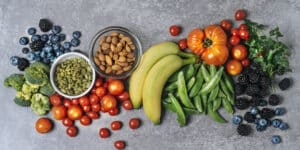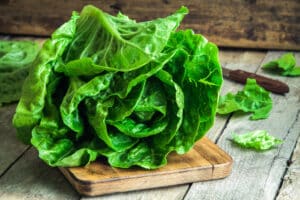Cabbage, broccoli, leeks, artichokes… When we start a slimming diet, we often think first of vegetables, firmly believing that we can lose weight. A certain number of rules are then imposed: we leave aside the chocolate bars, we do a little sport, we limit alcohol and, above all, we fill our basket with a maximum of vegetables. However, there are many myths circulating about the effectiveness of vegetables for weight loss. Do these foods full of dietary fiber really make you lose weight? Is it enough to eat vegetables to lose weight? Discover the answers to your questions quickly.
Au sommaire
ToggleVegetables, effective for weight loss

In addition, vegetables are known in the world of slimming nutrition to contain a significant amount of fiber. Whether soluble or insoluble, dietary fiber is essential to our diet and well-being by regulating blood sugar levels and intestinal transit. They therefore promote a feeling of satiety in order to avoid any cravings, while possibly eliminating carcinogenic substances. Other virtues of fiber: they slow down the accumulation of fat and reduce the level of bad cholesterol (LDL or low-density cholesterol). Finally, it should be noted that vegetables are also rich in vitamins, minerals and antioxidants, substances that are all essential to our health.
But beware of excesses!
It seems obvious that all foods, no matter how life-saving, should not be consumed without moderation. It is necessary to know how to reason and avoid that these foods are taken in excess. For example, if you never eat vegetables, you should introduce them little by little into your diet so as not to rush your digestive system. At the same time, you will be able to avoid inconveniences such as bloating.
Slimming vegetables: raw or cooked?
We simply opt for both. Thus, we are sure to make the right choice as part of a slimming diet by including all vegetables in raw and cooked versions in the diet. Therefore, we are sure to enjoy all the benefits of vitamin C that flows profusely from raw vegetables, while it is altered by cooking. However, cooking itself is sometimes useful for making certain fibers more digestible.
On the other hand, you should know that, if raw vegetables provide more nutrients than cooked vegetables, raw vegetables sometimes set a trap since they are often seasoned with a vinaigrette. Indeed, if the plate of raw vegetables in itself does not have significant caloric intake, it is the dressing that may increase these intakes. Thus, it is necessary to be careful when seasoning raw vegetables, especially if you have a heavy hand on the dressing.
Weight loss: we opt for vegetables, but not all

- pepper,
- mushrooms,
- zucchini,
- lettuce,
- cucumber,
- celery,
- onion,
- eggplant,
- asparagus,
- leek,
- cabbage,
- tomatoes,
- radish,
- and spinach.
However, while most vegetables are known for their slimming efficiency, some foods should be avoided, including raw vegetables that deteriorate due to fermentation. As we said about the dressing trap, after chewing, these raw vegetables are crushed in the stomach before going to the intestine, where fermentation will take place. However, the latter can very well destroy dietary fiber, especially since fermentation slows digestion and releases gas causing bloating.
Among the vegetables affected by this reaction, we prefer to avoid most cabbages, such as cauliflower, broccoli and Brussels sprouts. Nevertheless, if you can not do without these raw vegetables, at least take the time to steam them well, in order to facilitate the digestion of fiber.
Also, note that some families of legumes are also difficult to digest, even if you have taken the time to cook them well. This is particularly the case for dried beans, lentils and chickpeas, which should therefore be consumed in moderation. Finally, it is also not recommended to take raw vegetables with cheese, mayonnaise or bacon.
Also read:
